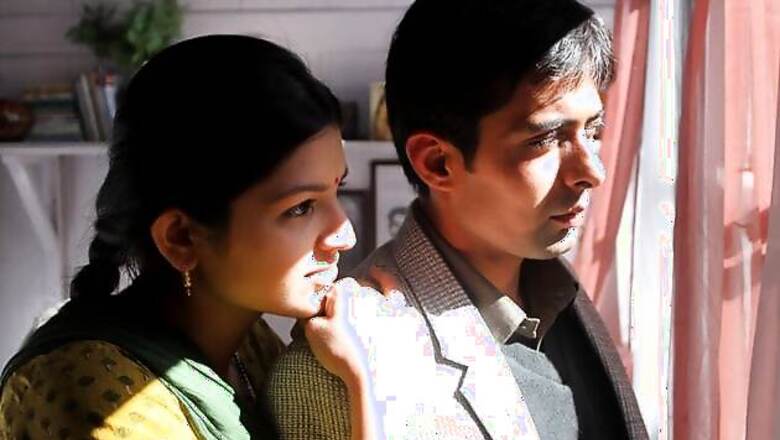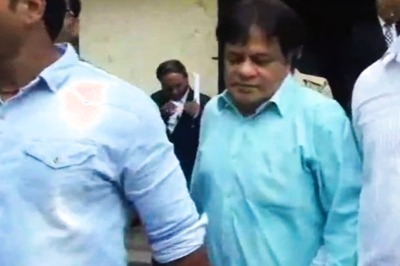
views
Film: 'Mastram'
Cast: Rahul Bagga, Tara-Alisha Berry, Kapil Dubey
Director: Akhilesh Jaiswal
Rating: 2.5/5
"Yowan ki pehli barsaat..."
"Kaamnaon ki chimney se dhuaan..."
"Kaamnaon ke naag phankarne lage..."
Hilarious and 'erotic' phrases such as these, and several artistically blurred fantasies of an earnest and passionate writer, are the only 'graphic' things you will come across in 'Mastram'.
How does one come up with a fictionalised account of a fiction writer? That too, of an author (of course, it could have been more than one) who was (in)famous for writing sleazy yet immensely popular pulp fiction in the '80s?
'Mastram', written and directed by 'Gangs of Wasseypur' screenwriter Akhilesh Jaiswal, tries to imagine the back-story of the anonymous author of popular pulp fiction and raunchy stories in Hindi, known only as Mastram. Was/is there more to the man than his lurid verses?
Set in the '80s in Manali, the story revolves around an aspiring writer-cum-bank-employee Rajaram (Bagga) who dreams of travelling to Delhi and becoming a critically-acclaimed writer. He is married to a traditional girl Renu (Berry), and lives a mundane existence. Convinced of his own literary talent, Rajaram is politely, and sometimes not so politely shown the door by many publishers and gently mocked by his friends. Egged on by a small-time publisher to add 'masala' to his writings, Rajaram fights his scruples -- how to add masala, or to maintain the sanctity of his art?
On his way home, he has an epiphany -- masala equals sex! And here, fueled by his own experiences, fantasies and images seen on the big screen, Rajaram drops all niceties -- strictly in his writings -- and embarks upon a lurid, testosterone-fulled, journey into the world of erotica.
Jaiswal correctly portrays the constant struggle his protagonist Rajaram (who adopts the pen-name Mastram for his illicit literature) goes through. A writer lurching through a hypocrisy-infested society, which whole-heartedly enjoys the raunchy masala, but shamefacedly refers to it as "woh wali kitaab", has been aptly portrayed by Bagga.
There are several uproarious scenes in the film. For example, when Rajaram spots the local baniya greedily gazing at a young shopper and offering her a free lollipop, Mastram takes over and portrays the scene in a hilariously lurid manner -- replete with plentiful sighing, moaning and slow undressing. The book that comes out of this tryst is titled, 'Baniye ka lollipop'. Other stories such as 'Haspatal mein pehli suhag-raat', and 'Sheela Ka Yowan' also have interesting origins.
The film will disappoint those who go to see it in the hopes of catching a lot of 'action', for there are no explicit scenes in the films. However, many hilariously salacious dialogues and uncomfortable-yet-funny situations revolving around adolescent readers will provide enough masala.
What lacks, is ironically, more colour. While the story looks and feels realistic enough, as a viewer, we were intrigued to see and learn more about the elusive Mastram and hoping to find a flamboyant (even if in his own imagination) character. Jaiswal's Rajaram/Mastram is too...normal -- sometimes even bland. As it is an 'imagined biography' of the writer, we were left with the nagging thought that the writer of 'Mastram' had not made him as intriguing, mysterious and naughty as one might have hoped.
As Mastram might himself have put it, "Kamukhta ke rass ki thodi kami reh gayi".

















Comments
0 comment